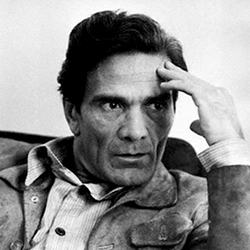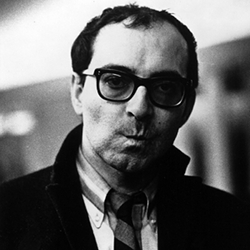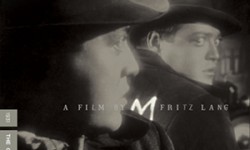
IFFBoston: Beneath the Harvest Sky Review
Beneath the Harvest Sky (2013)
Cast: Emory Cohen, Callan McAuliffe, Aidan Gillen
Directors: Aron Gaudet, Gita Pullapilly
Country: USA
Genre: Drama
Editor’s Note: The following review is part of our coverage of the 2014 Independent Film Festival Boston. For more information please visit iffboston.org or follow IFFBoston on Twitter.
Many great independent films are successful because of their personal nature. Limited by often miniscule budgets, they make up for the lack of financing with intimacy. The best kind of indies have a great strength of character, showing that the writers and directors know these people. For that is what they are, not merely actors playing characters, but people. It draws us further into this world, and the familiarity leads to our own abandonment of the real. There are bits and pieces of this with Beneath the Harvest Sky, but not nearly enough to make it memorable.
[Gaudet and Pullapilly's] documentary background is evident throughout much of the film, particularly in developing the world of their characters. Van Buren is painstakingly detailed and there is a familiarity with the town that translates wonderfully to the screen.
Taking place in the small rural community of Van Buren, Maine, the film centers upon the friendship between Casper (Emory Cohen) and Dominic (Callan McAuliffe). The boys are hopelessly devoted to one another, although most onlookers do not understand why. Dominic is a smart boy with a seemingly bright future, while Casper is the rebel perpetually assigned detention. Regardless of what others think, they have plans to leave the sleepy northern Maine town as soon as they graduate and head to Boston to watch the Red Sox. In order to fulfill their dream, they have to make some cash, and their chosen paths are reflections of their potential futures; Dominic working the harvest and Casper moving drugs.
 Beneath the Harvest Sky is the narrative debut of writing-directing duo Aron Gaudet and Gita Pullapilly. The couple, former documentarians of The Way We Get By, acclimate themselves adequately to the medium but not without their share of growing pains. Their documentary background is evident throughout much of the film, particularly in developing the world of their characters. Van Buren is painstakingly detailed and there is a familiarity with the town that translates wonderfully to the screen. Shooting with a de-saturated palette, the town seems to be under a perpetual haze. The depression of the area is palpable even before you begin to notice the forlorn expressions of its inhabitants. Its people head to jobs that offer little joy for nearly as little pay, and no one appears to be thriving. This is a confining world in which even as tourists we begin to feel trapped.
Beneath the Harvest Sky is the narrative debut of writing-directing duo Aron Gaudet and Gita Pullapilly. The couple, former documentarians of The Way We Get By, acclimate themselves adequately to the medium but not without their share of growing pains. Their documentary background is evident throughout much of the film, particularly in developing the world of their characters. Van Buren is painstakingly detailed and there is a familiarity with the town that translates wonderfully to the screen. Shooting with a de-saturated palette, the town seems to be under a perpetual haze. The depression of the area is palpable even before you begin to notice the forlorn expressions of its inhabitants. Its people head to jobs that offer little joy for nearly as little pay, and no one appears to be thriving. This is a confining world in which even as tourists we begin to feel trapped.
Going hand-in-hand with the cinematography is an original score that does more to elevate the film than any of its other components. From first time composer, Dustin Hamman, the music goes from a soft rumble to raucous thump. With a grit that mirrors the visual palette, it is as if Van Buren is constantly emitting this sonic pulse. The music is a part of the film, not something that is merely tacked on. It is the blood pumping through its veins, and shows a deep partnership between composer and filmmaker. Unfortunately, for all the work put in to the establishment of place it is disappointing how little is translated to story and character development.
The film is hopelessly overpopulated, and even the leads are offered little complexity. The camerawork that works so well for the development of location fails the actual story. We constantly linger nearby, voyeurs in a world that didn’t invite us, close but dramatically separate. This separation carries over to the characters themselves. All of the characters, save Casper, are nebulous and broadly drawn. Their motivations are unclear and mutable to the point of frustration. This keeps us from understanding who they are as people and limits the potential for a deeper connection. As consequences begin pile up, we are left wondering if we even need to care. There is no familiarity, no intimacy, we are little more than acquaintances, and for many, closer to strangers. I yearned for a deeper understanding of these people, hoping for more than just outward appearances, but was offered none. The film purports to be about friendship, but is far more concerned with Casper’s story, causing a thematic confusion. Nevertheless, even Casper is offered little chance to become more than a shallow representation of a deeper character, despite an authentically raw performance from Emory Cohen.
The camerawork that works so well for the development of location fails the actual story. We constantly linger nearby, voyeurs in a world that didn’t invite us, close but dramatically separate.
In addition to the poor character development is a story that is scattershot at best. Gaudet and Pullapilly mention that they were greatly inspired by the people and stories of Van Buren, attempting to infuse as much of the local flavor into the film. What results, however, is a mishmash of disconnected scenarios and needless side plots. Thematic elements are revealed through heavy-handed exposition, but then never followed through upon. These distractions and a front half of near constant wheel spinning, speak to this absence of propelling vision. Once the actual plot arrives it feels like an afterthought and its disconnection from larger themes is nearly maddening. The town of Van Buren remains the only character to be fully realized, and its role in the story falls by the wayside as the film nears its end. Somewhere at the core of Beneath the Harvest Sky is an honest film about growing up in a nowhere town, but it is so buried under poor pacing and distance from its own characters to be just too far out of reach.






















